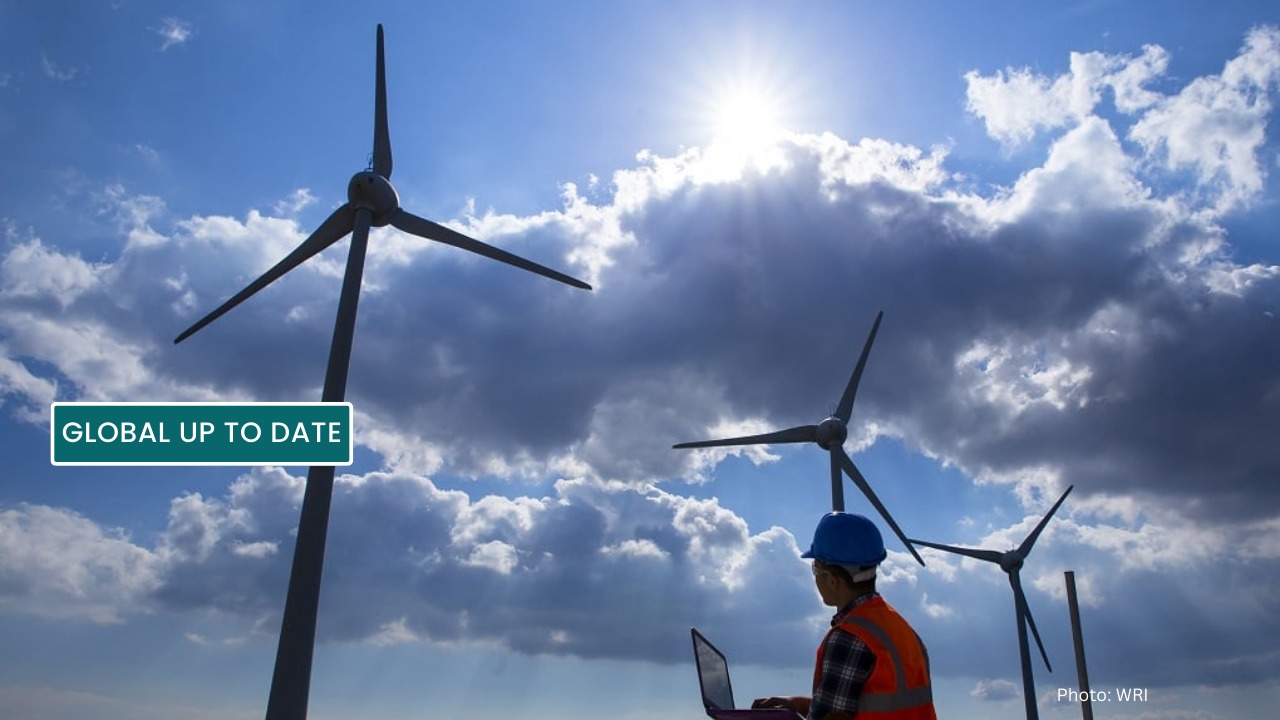Chinese Leadership in Renewable Energy: Should the World Learn?
Kazi Rhid | 20 December 2023
China is known as the highest emitters of carbon as its rapid growth of industrialization in the past 2 decades. The repercussions are catching up to the highly autocratic regime. Beijing has experienced its coldest December since records began in 1951. Temperatures in the city have frequently fallen below -10C this month. This has resulted in heavy snowfall that has caused blockades all over the city. The significance of this event is notable since the last time China had seen impacts of climate change on their region, they did what many other nations failed to do, act.
In other parts of the world things have been going as the scientist have predicted. “No surprises” says,Dr Mike Rivington the lead researcher at the James Hutton Institute in Ireland. When‘Storm Babet’ burst river defenses in Brechin, Angus, causing flooding in more than 400 properties. The windy storm flattened the nearby plant life to the ground which can be only described as dramatic. The flooding has resulted in displacement of communities in over 400 properties, and the food production has been heavily affected because of the storm.
The Amazon rainforest has been seeing droughts in the recent years which is only getting severe each year. This year it has been the worst in recorded history, the usual rainy season starts on October but it was dry up until late November this year. The El Nino weather pattern has been taking its toll on the South-western side of the globe. The Amazon was the carbon capturers, the vast ecologically diverse area was known as the lungs of the world. Which took in the carbon and replaced it with a breath of fresh air for all of the animal kingdom. As it stands "On average, the Amazon stopped functioning as a carbon sink" says Flávia Costa, a plant ecologist at the National Institute for Amazonian Research, who has been living and working in the rainforest for 26 years.
The COP28 summit has made some promises, like it always does, the change in language is the only significant outtake from the Climate Conference held in Abu Dhabi this year. The president of the conference was a CEO of Adnoc, an Abu Dhabi based Oil Giant, the irony lies in the sentence itself. Close to 200 nations were in the United Arab Emirates for almost two weeks to try to make progress on tackling climate change after months of record-breaking extreme weather. The previous language of the deal was to “Phase out” fossil fuels, whereas the new deal has changed it to “Transition away from” fossil fuels. The target of limiting emissions to 1.5C seems impossible to hit at this point.
Prof Kevin Anderson from University of Manchester said "No doubt there will be lots of cheering and back-slapping... but the physics will not care. As the new agreement locks in high levels of emissions for years to come, so the temperature will continue to rise." The globe is set to hit the peak carbon emission by 2025 though the developing countries would need some more years to hit that benchmark. Which leads us back to the first part of this piece, China, which is one of the countries that will be hit the hardest on the effects of climate change, which has set its goals to peak its carbon emissions by 2030 which experts say is ambitious.
The difference between the other world super powers and China is that, when faced with evident disasters they try to work their way out of the problem. In 2010 Beijing was the worst in terms of air pollution in the world, the Chinese leadership took the cautionary sign and invested heavily on the development of clean energy and green cities. The closed politics and open economic model of the country forced it to build an industry surrounding renewable. If any country in the world wants to build green infrastructure, they have to rely on China for some parts of it at some point. Having the same knee-jerk reaction to the overwhelming cold this time might trigger innovation in climate friendly infrastructure as it did in 2010. This is a reason for hope no doubt, but other countries need to remember that the dependability on China is not something they would want. The political economic advantage that comes with a powerful industry infrastructure would put the ‘oriental powerhouse’ quite a literal meaning, it would put a chokehold on the rest of the world that might shift the dynamic towards an authoritarian mode of governance globally.
Kazi Rhid is the Content Strategy Coordinator at CGS
Sources:
1. Amazon drought: 'We've never seen anything like this' - BBC News
2. What was agreed on climate change at COP28 in Dubai? - BBC News
3. Beijing shivers through coldest December on record - BBC News
4. COP28: Landmark summit takes direct aim at fossil fuels - BBC News
5. How China Plans to Win the Future of Energy - YouTube
